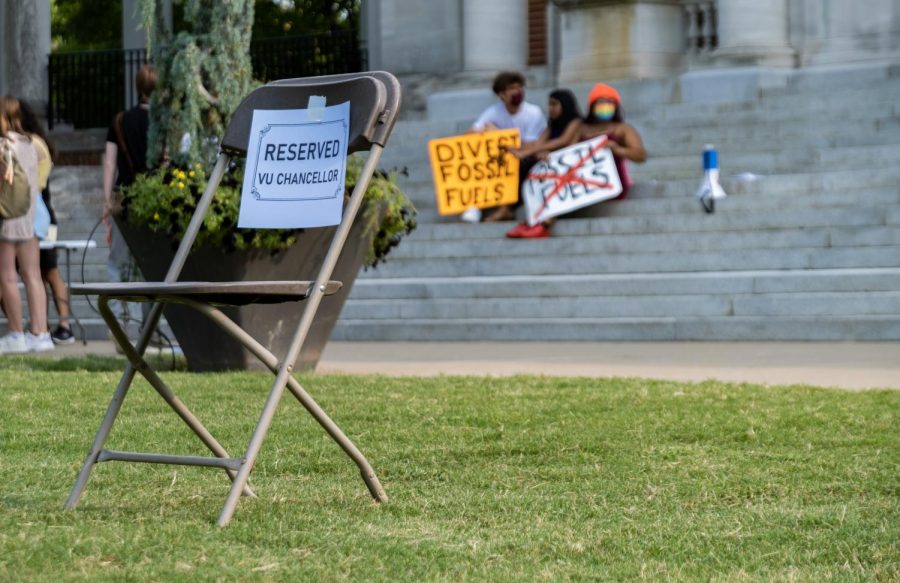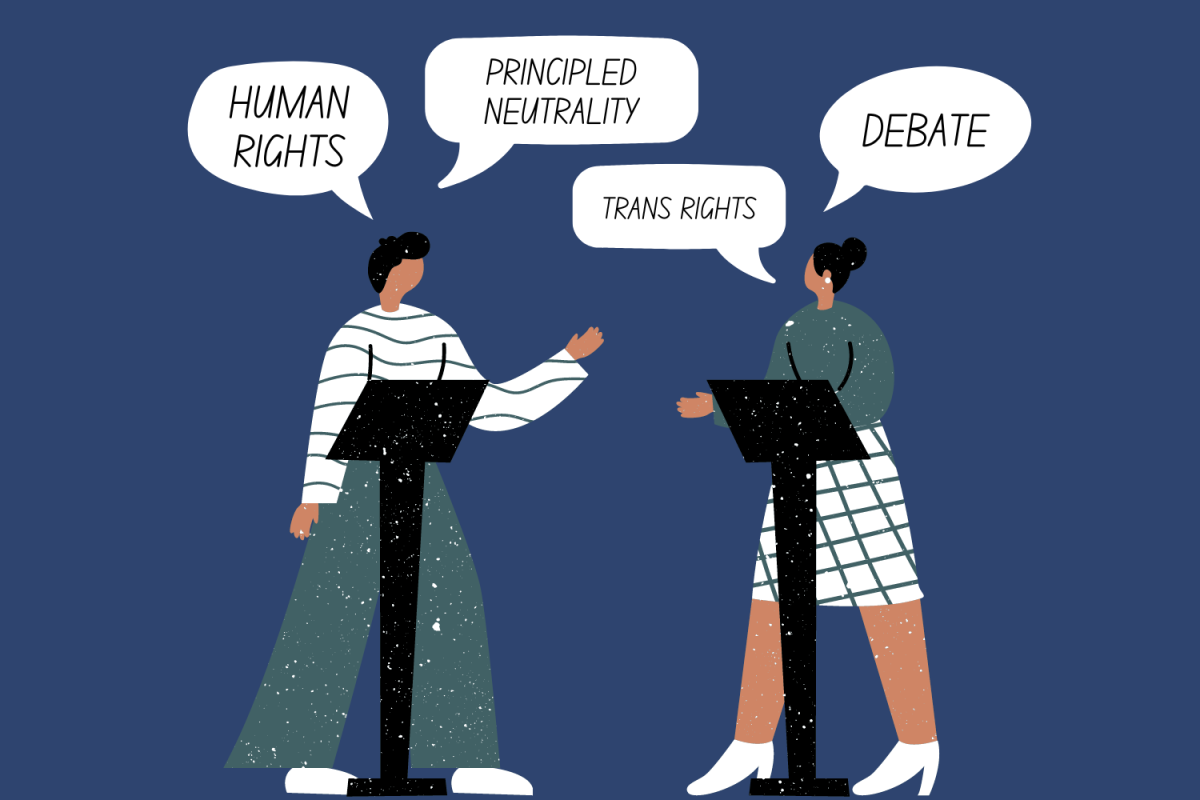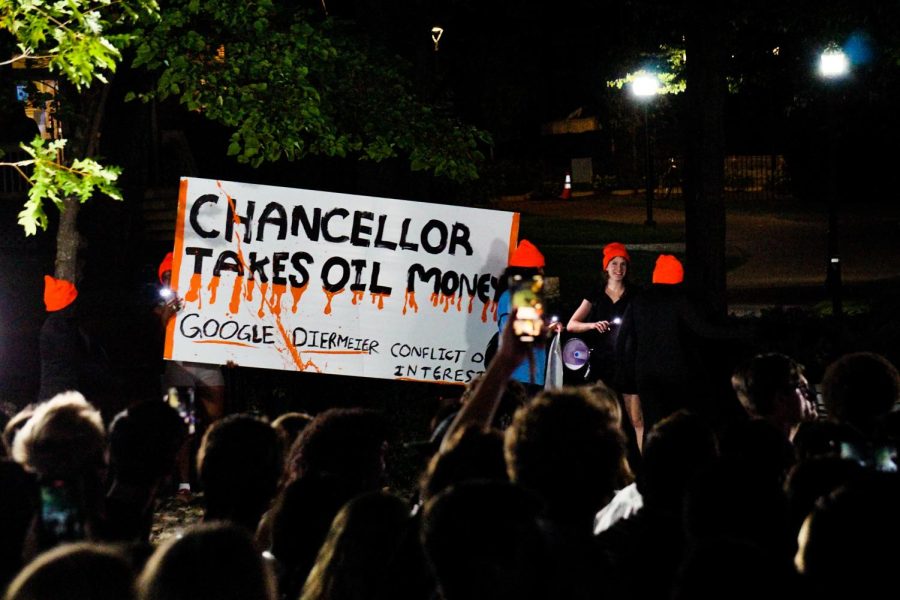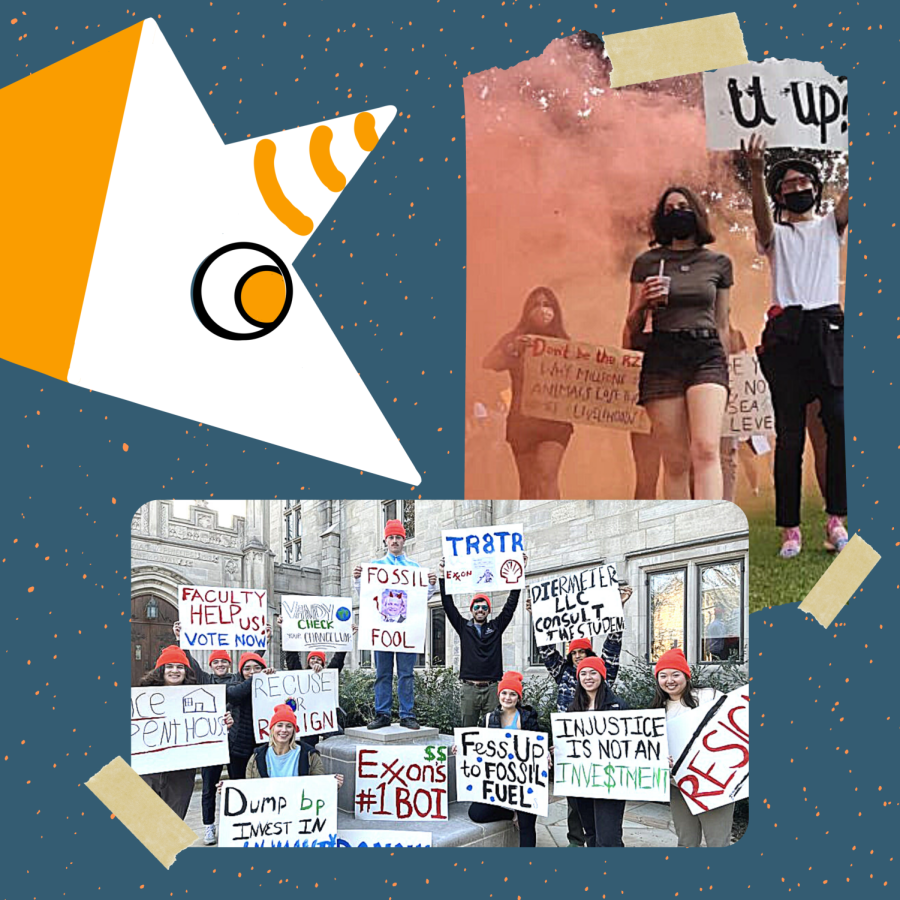More than a year ago, my peers Miguel Moravec and Emily Irigoyen kicked off the fossil fuel divestment campaign at Vanderbilt University. Since then, the campaign has made significant headway. Many students, including myself, have joined the movement as activists. Both Vanderbilt Student Government and the Graduate Student Council have passed divestment resolutions. Over 1,500 individuals have signed the divestment petition, and multiple large protests have been organized. The movement has even gained the attention of former vice president Al Gore, who recently endorsed divestment at Vanderbilt.
As the campaign has progressed, students, faculty and alumni have all pressured Chancellor Daniel Diermeier on the issue. In response, Diermeier has clearly stated that he does not support Vanderbilt divesting its endowment from fossil fuel investments, which are estimated to be around $500 million. However, the Chancellor’s core arguments are severely flawed. As students who seek meaningful debate on this matter, it’s time we hold him intellectually accountable for his weak arguments. To quote the Chancellor himself from his Founder’s Walk address, we ask him to “always be open to being convinced by the other side, open to learning something new, open to gaining a broader perspective.”
I don’t want to mischaracterize the Chancellor’s position, so I strongly suggest that everyone read his full responses in his Nov. 19, 2020, Apr. 25, 2021, and Dec. 8. 2021, debriefs with The Vanderbilt Hustler. Nonetheless, Chancellor Diermeier’s arguments against fossil fuel divestment are summarized as the following:
As a university, Vanderbilt students and faculty should debate the issue of fossil fuel divestment (versus shareholder activism). However, the university itself should not “prescribe what a particular policy solution should be.”
By divesting, Vanderbilt would be establishing a “party line” and taking the stance that divestment is the “best way to address climate change.” Universities “should not take advocacy positions on public policy issues.” In addition, the purpose of the endowment is to maximize returns, not to be an “advocacy tool.”
Diermeier fundamentally mischaracterizes our campaign’s argument for fossil fuel divestment. Had the Chancellor taken the time to actually meet with students and hear our pitch, perhaps he would know our position. Nevertheless, the campaign’s motivations are not to use divestment as “the best policy solution to address climate change.”
Rather, we argue that divestment is in Vanderbilt’s own interests, as fossil fuel investments actively hurt our reputation, community and endowment.
The reputational risks of remaining invested in fossil fuels are clear. Vanderbilt is already ranked in the bottom 25th percentile for sustainability among the top 40 schools, partly due to its fossil fuel investments. For context, most of Vanderbilt’s direct competitors have publicly committed to divesting from fossil fuels, including Dartmouth, Brown, Cornell, Columbia, Georgetown and even Harvard University. Considering that 78 percent of applicants weigh their university’s environmental stances in making their college decisions, continued inaction on this mainstream issue may hurt Vanderbilt’s ability to attract top students and faculty.
In terms of our community, as we saw with Waverly, Tennessee, last summer, extreme weather events continue to threaten the lives of both faculty and students as well as cause more than 8 million premature deaths per year globally. The question is simple: Why is Vanderbilt continuing to fund an industry that hurts both its own community and the world’s most vulnerable populations?
This leads us to the financial case for divestment.
The fact of the matter is that divestment is good for the endowment. Multiple studies, including research done by the world’s largest asset manager BlackRock, have found that divested portfolios either match or outperform non-divesting portfolios. In addition, as Gore pointed out, fossil fuels have been among the worst-performing sectors in the past decade and currently face existential risks as an industry. For the Chancellor and anyone interested, please read a white paper that I personally wrote, entitled “Divestment 101: The Case for Fossil Fuel Divestment at Vanderbilt University,” to go deeper on this part of our argument. This report also explores the fact that because the university invests in fossil fuel companies through externally managed funds, Vanderbilt does not directly engage in meaningful shareholder activism.
Finally, we ask the Chancellor: if divesting from fossil fuels is taking a policy “party line,” what does that make for the fact that we are actively investing in fossil fuels? Is that not a policy choice in itself? Or do status-quo decisions not count?
We’ll let him answer that. But the reality is that several times throughout history, Vanderbilt has chosen to challenge the status quo.
When top universities lacked racial and ethnic representation, Vanderbilt made the choice to seek a diverse student body and has become a leader in recruiting talented students of color. When the country faced economic hardship in 2008 and other universities reduced their commitment to financial aid, Vanderbilt made the choice to establish several policies which eventually became the celebrated Opportunity Vanderbilt financial aid program.
If Diermeier was around when these changes were proposed, would he state that the role of Vanderbilt is to only “discuss and debate” racial and economic issues but not act on them? Would he have stonewalled these policies, like he is doing with divestment, and argue that Vanderbilt should “not take advocacy positions on public policy issues?”
We hope not.
The bottom line is that throughout these decisions, Vanderbilt recognized that changing its previous policies was in its best interests. In doing so, the university has transformed into the amazing institution that it is today, the institution that so many of us are proud to be a part of.
Chancellor Diermeier, let’s act in Vanderbilt’s best interests and make the choice to divest from fossil fuels.






















